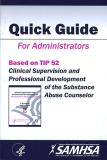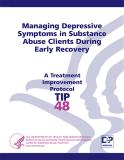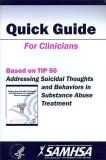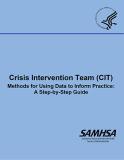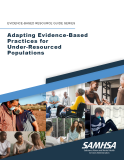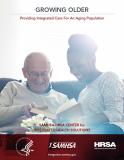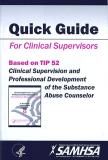
This guide offers tips for clinical supervisors in the substance use disorder treatment field. It covers functions of a clinical supervisor, and highlights stages of professional development for counselors and clinical supervisors.
Units per Product
Download
Quick Guide for Supervisors (TIP 42): SA Counselors
File Type: PDF
File Size: 597 KB


